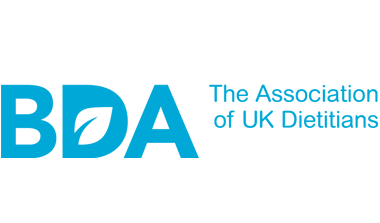Eating Well For Perimenopause & Menopause
Women's HealthHalf the world’s population will go through the menopause, with eight in ten women experiencing troublesome symptoms. Many don’t realise that simple changes to eating habits can have a large impact on how they experience the menopause and its effects on health and wellbeing both now and in the years to come.
What is the menopause?
The menopause occurs 12 months after your last menstrual period, at which point you become postmenopausal. When you ‘go through the menopause’ you are in fact going through the perimenopause. Symptoms of the perimenopause typically occur between 45-55 years and the average age of the menopause is 51 years.
Changes to levels of the hormones responsible for menstruation and fertility (a key hormone being oestrogen) mean periods become irregular. ‘Hidden’ body changes occur too, including increases in blood pressure, cholesterol (increasing risk of heart disease), and the rate at which calcium and other minerals are lost from bones (increasing our risk of osteoporosis).
Noticeable symptoms can include weight gain, bloating, hot flushes, night sweats, insomnia, irritability, poor concentration, more frequent headaches, and joint pains. These may last for just a few months or for several years. The range of symptoms, how often they occur and how severe they are will differ for everyone.
What difference can nutrition make?
Changing your normal way of eating can help to reduce symptoms. One common mistake is the assumption that taking Hormone Replacement Therapy (HRT) means you can ignore diet. Whether or not you use HRT, what you eat and drink matters for day-to-day symptoms and to manage longer term changes to health risk.
Studies have shown that increasing wholegrains, fruits, and vegetables and reducing fat intake are moderately effective in reducing hot flushes. The effects were larger for those who also lost weight.
Looking at ways to eat a healthier balanced diet, including eating more fibre-rich foods, beans, soya beans and pulses, achieving at least five different vegetables and fruit a day and opting for more frequent plant-based meals, can all make a difference to your menopause experience. A thriving and diverse gut microbiome (the bacteria living in the gut) may affect hormone levels too, so you might consider trying to eat 30 different plant foods each week to support this.
Will I gain weight and change body shape?
It’s a myth that HRT will cause weight gain. That said, weight gain around the time of the menopause is both common and frustrating for many women, but much of this is due to ageing and not the menopause.
The menopause is, however, responsible for a change in body shape. Changing hormone levels increase the amount of fat stored around the waist and this increases cholesterol levels, blood pressure and the risk of developing diabetes.
Combining healthy eating with exercise is far more effective than either dieting or exercising alone. It’s important to do resistance or muscle building exercise two to three times a week to help keep muscles strong and prevent losses. Try these at-home exercises: https://www.nhs.uk/conditions/nhs-fitness-studio/. The BDA Food Fact Sheet on weight loss is a detailed guide to safe and effective weight control.
Keeping bones strong
Falling levels of oestrogen increase the speed at which calcium and other minerals are lost from bones. As minerals are lost, bones may become weak and more likely to fracture (a condition called osteoporosis). HRT maintains oestrogen levels and can protect bone health. Resistance exercises stimulate bone building and help to keep bones strong.
Eating and drinking enough calcium, vitamin D and protein is also an important part of keeping bones healthy. Eat plenty of calcium-rich foods every day - aiming for 2-3 servings daily. The Calcium Food Fact Sheet lists the foods rich in this mineral.
Despite us being able to make vitamin D in the skin following exposure to sunlight, many people living in the UK have poor vitamin D reserves. Women over the age of 65 should consider taking a 10 microgram supplement all year round. Find out more in our Vitamin D Food Fact Sheet.
Maintaining a healthy heart
Cholesterol levels tend to rise during the menopause so it’s worth getting this checked by your GP or pharmacist every couple of years. Simple changes to what you eat and drink can help to limit the rise. Discover more about cholesterol here.
If you know you have high cholesterol (from a test) then consider using products that contain plant stanols or sterols at least once a day. Find more information in the Food Fact Sheet on Sterols and Stanols.
What about plant oestrogens?
Plant oestrogens (also called phytoestrogens or isoflavones) are substances in plants that are similar to human oestrogen. They can be found in soya beans (and foods made from these including milk-alternatives), flax seeds or linseed.
Their effects on menopausal symptoms have on the whole had mixed results, possibly due to different levels of bacteria living inside our guts and also due to the varying levels present in foods across different seasons of the year. There is also a wide variation in the levels contained in the supplements available, making comparison difficult.
Plant oestrogens may help (but they aren’t a given), and the only way to find out is to try consuming them regularly every day, as part of a healthy balanced diet, for at least two to three months. Negative effects are unlikely and eating more foods rich in plant oestrogens can help to reduce cholesterol levels too.
Foods that trigger hot flushes
- Caffeine in coffee, tea and hot chocolate
- Alcohol can make flushes and night sweats worse
- Spicy foods and curries
Top tips
- Changing eating habits and lifestyle may help to reduce symptoms, keep bones strong, and reduce risk of heart disease
- Eat more plant-based foods, including different coloured fruit and vegetables, plenty of fibre-rich cereal foods, and more nuts (unsalted), peas and beans for protein
- Aim for two-three portions of calcium-rich foods every day
- Reduce caffeine and alcohol intake to help manage hot flushes
- Maintain, or take steps to achieve a healthy body weight
- Take regular moderate exercise, especially weight bearing activity and include some muscle strengthening exercises
- Get advice from your dietitian, doctor or pharmacist on nutritional supplements, especially if you are taking regular medications
























































































































